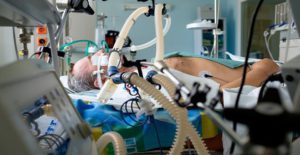The Ethics of Gently Electrifying Prisoners’ Brains
By Hazem Zohny and Tom Douglas
Scientists who want to study the effects of passing electric currents through prisoners’ brains have a PR problem: it sounds shady. Even if that electric current is so small as to go largely unnoticed by its recipient – as in the case of transcranial direct current stimulation (tDCS) – for some, such experiments evoke historical abuses of neuroscience in criminal justice, not to mention bringing to mind some of the more haunting scenes in films like One Flew Over the Cuckoo’s Nest and A Clockwork Orange.
And so, last week the Spanish Interior Ministry put on hold an impending experiment in two Spanish prisons investigating the impact of brain stimulation on prisoners’ aggression. At the time of writing, it remains unclear what the ministry’s reasoning for the halt is, though the optics of the experiment might be part of the story.
Read More »The Ethics of Gently Electrifying Prisoners’ Brains

